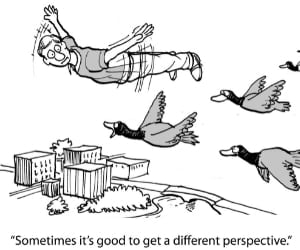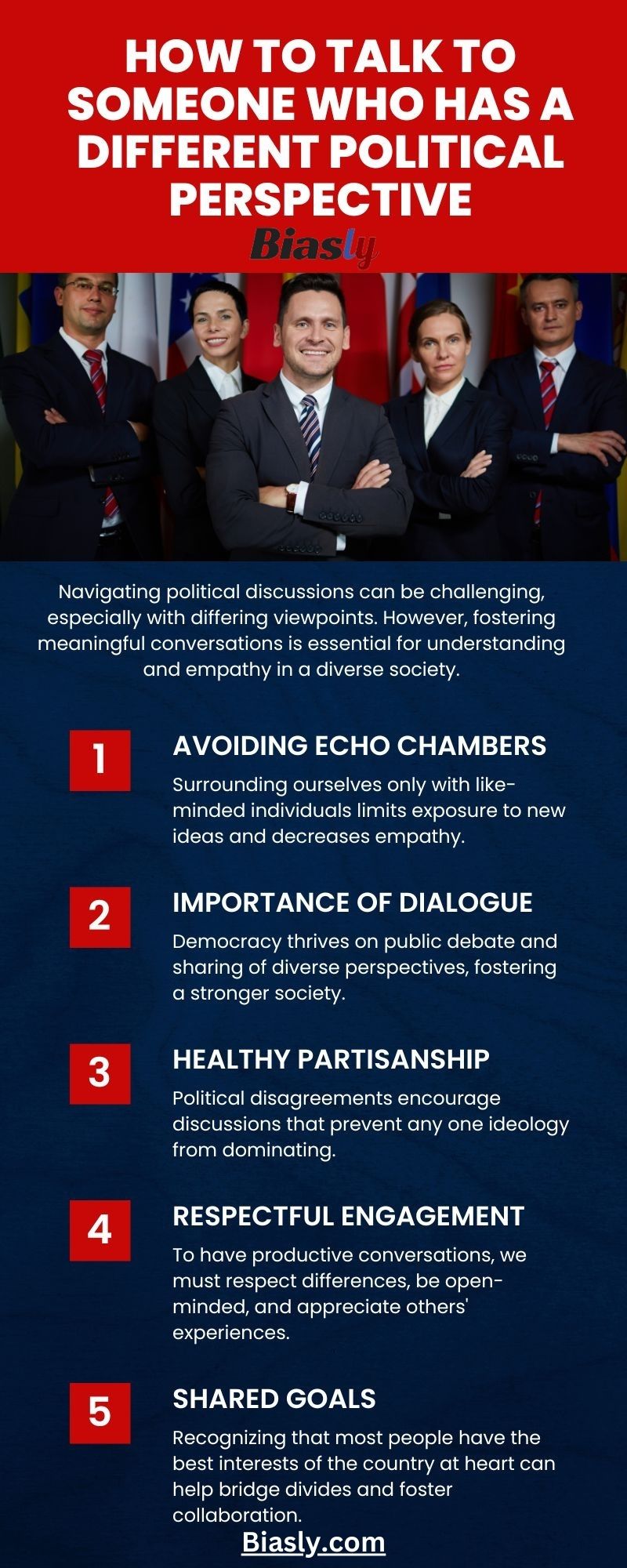
We’ve all been there. You meet someone for the first time, maybe a new coworker or the friend of a friend at a party, and you just hit it off. The conversation is going great until they say that one thing about politics that really flabbergasts you, and ruins the whole prospect of your burgeoning friendship. Or maybe, you already have that one friend or family member that you just don’t see eye to eye with on politics, so you simply avoid the topic altogether in order to prevent arguments.
The point is, it’s impossible to go through life without associating with people who have different political views from ourselves. We can pretend like politics don’t exist around them, or set off debates that explode like the Fourth of July. But what if instead, we can engage in meaningful conversations and thoughtful exchange. The question is, how?
Continue to Part 2 to see helpful examples on exactly how to start a political conversation.
Why Does it Matter?
Actually, the first question is, why should we even be bothering with these kinds of people? We get to pick and choose our friends, we can avoid personal and political conversations at work, and hey, we can even disown or estrange ourselves from our family members if we really want to. We get to decide who we associate and speak with, so why not just hang out with people who share our opinions and perspectives?
Simply put, when we shut ourselves off to exposure from these differing and unique viewpoints, we risk creating a reinforcement bubble around ourselves, or as it is also known, an echo chamber. Essentially, when we only surround ourselves with opinions that match our own, it magnifies and enforces that perspective into our brain, dampening our ability to open up to novel concepts and experiences. But why should that matter?
Well, for one thing, doing this actually decreases our ability to feel empathy for others, primarily because it reinforces the concept of ‘us’ vs. ‘them’. And the less empathy you feel, the harder it is to connect with your fellow human beings. Reinforcement bubbles also cause us to overinflate how important and prevalent our own opinions and views are amongst the general populace. We feel like ours must be the majority view, when in reality that might not be the case. Lastly, and perhaps most importantly, it leaves us close-minded and shuts down the possibility of dialogue, debate, and collaboration.
Considering how hotly contested and polarised politics are in our country, this is a particularly bad place to be.
True Democracy
Democracy depends upon, and in fact thrives on, public debate and information sharing. It is an arena of ideas, and sometimes even arguments, where different ideas can sometimes cooperate together, and other times butt heads with each other, creating a thriving society that is, regardless, made stronger by those differences. But this strength can only develop when these differences are allowed to be discussed in a public forum; this is where public opinion forms and then turns into political action for the nation as a whole.
In order for this forum of discussion and collaboration to take place, people from all walks in life and political perspectives have to be willing to create dialogue. This doesn’t mean that everyone has to be on the same page, hold to the same beliefs, or even let bipartisanship be the norm.
In fact, Aaron Astor of the Washington Post argues that partisanship is normal and healthy for American democracy; it is this battle of ideas and ideals between the parties that keeps us democratic, preventing any one ideology or political party from taking control of the government. It forces us to discuss the ideological differences that exist across the American political spectrum and requires us to make compromises between those ideologies in order to achieve anything in the political arena. And that’s the key to democracy; a dialogue between ideas that requires open-mindedness.
Meaningful Connections
This is where the talking comes in. If we’re going to keep ourselves open to other perspectives, then we have to be willing to talk and connect with those whose views are different from our own. And in order for those conversations to be productive, we have to do the following:
- learn to be able to respect differences with others of opposing views,
- be open to understanding and empathizing with other views, even if it doesn’t change our own view,
- being kind and not make it personal, and
- appreciate others’ life experiences.
These conversations don’t necessarily have to change anyone’s opinion or political leanings. Instead what is most important about them is to help us better understand one another, to see each other as fellow human beings, and create meaningful and collaborative connections. Instead of hearing political jargon and ramblings from career politicians, talking to each other helps us understand where the other person comes from so that even if we still don’t agree with them, we can at least see why our political leanings don’t always work perfectly for everyone. And who knows, once in a while, maybe we can influence someone along the way.
Politics will always be politics, and there’s never going to be a one-size-fits-all kind of solution; that’s why we live in a democracy, where we can hash things out, have disagreements, and still move forward as a nation, even if we argue about it sometimes. When it comes down to it, almost every person has the best interests for the country at heart; we’re all Americans, just trying to do our best to survive and succeed in this world. We just need to remember that and, rather than seeing those across the political aisle as our enemies and rivals, remember we’re all on the same side with the same goals, just with different ideas on how to achieve those goals.
Continue to Part 2 to see helpful examples on exactly how to start a political conversation.























